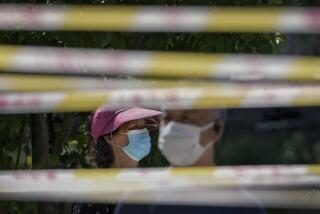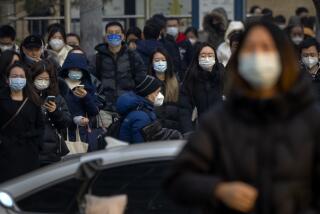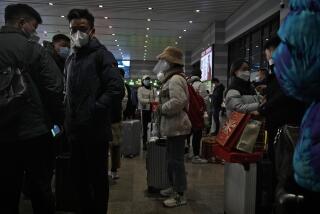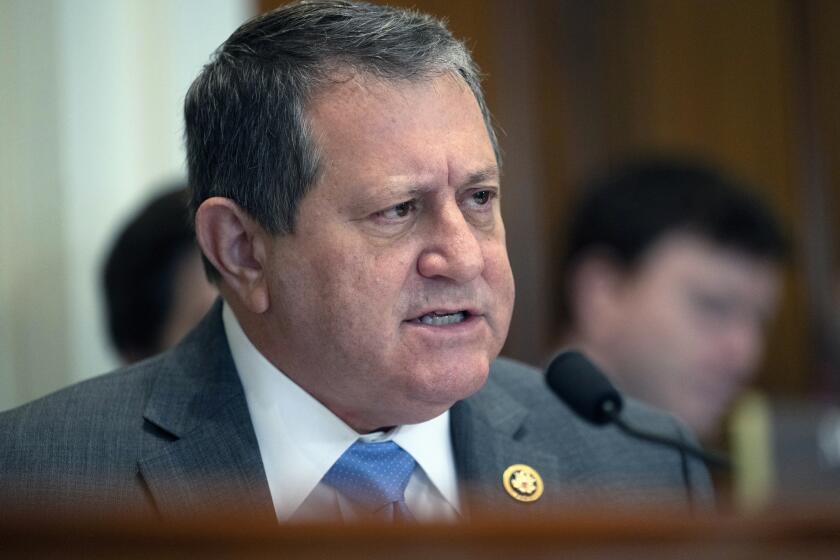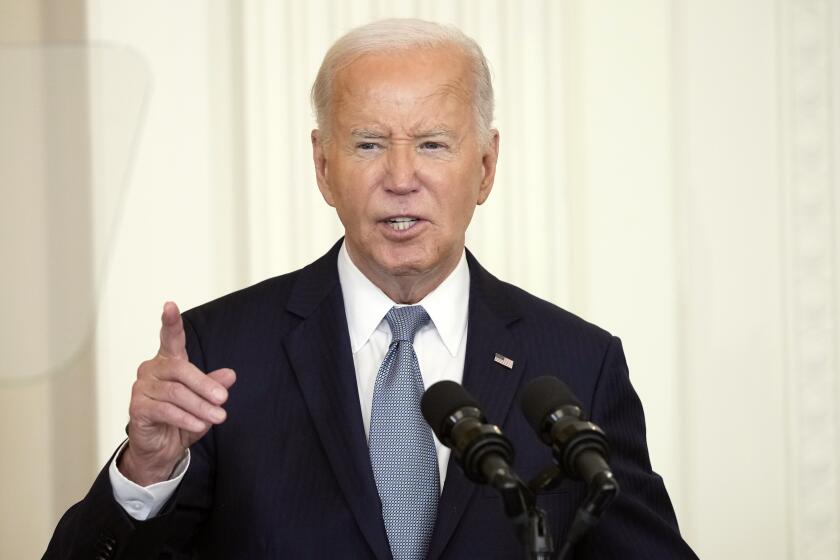Human-to-human transmission confirmed in China as coronavirus cases grow
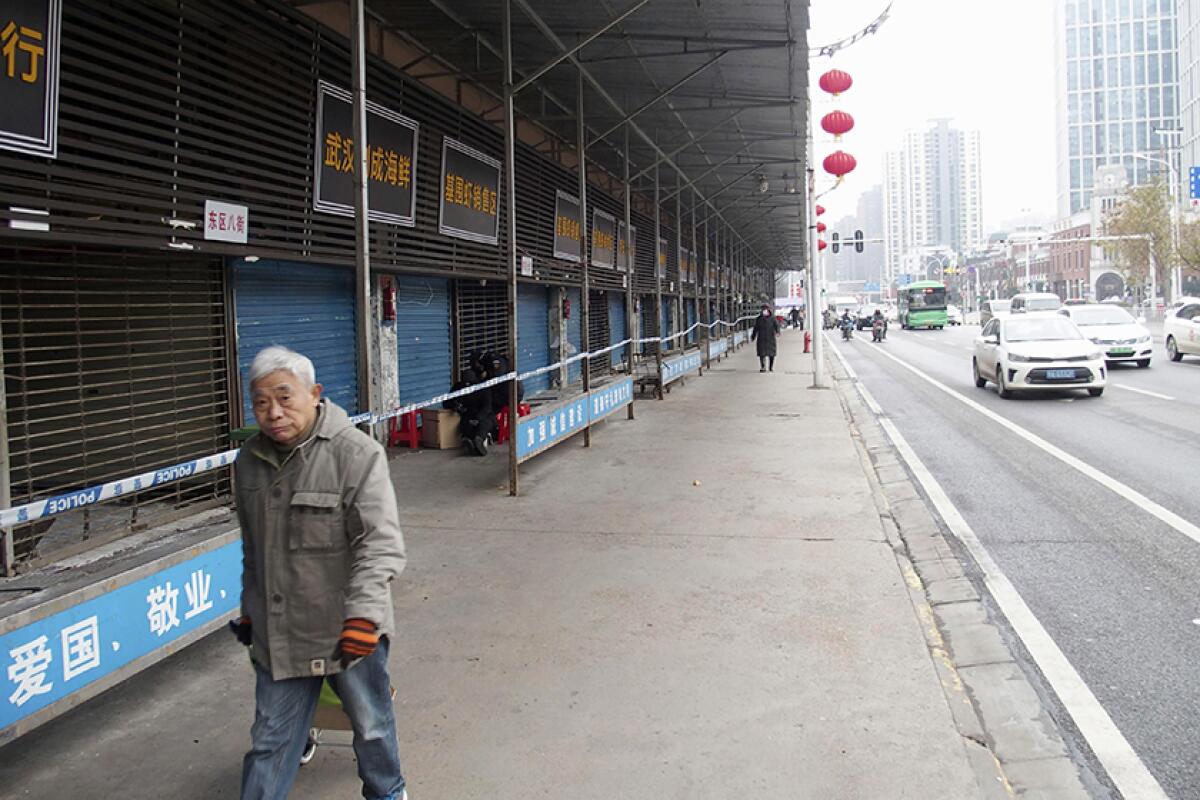
The head of a Chinese government team of experts said Monday that human-to-human transmission had been confirmed in an outbreak of a new coronavirus, a development that raised the possibility that it could spread more quickly and widely.
Team leader Zhong Nanshan, a respiratory expert, said two people in Guangdong province in southern China caught the virus from family members, state media said. Some medical workers also have tested positive for the virus, the English-language China Daily newspaper said.
The announcement capped a day in which authorities announced a sharp uptick in the number of confirmed cases to more than 200, and China’s leader called on the government to take every possible step to combat the outbreak.
“The recent outbreak of novel coronavirus pneumonia in Wuhan and other places must be taken seriously,” President Xi Jinping said in his first public statement on the crisis. “Party committees, governments and relevant departments at all levels should put people’s lives and health first.”
Xi’s remarks were reported by state broadcaster CCTV.
Concerned about a global outbreak similar to SARS, which spread from China to more than a dozen countries in 2002 and 2003, numerous nations have adopted screening measures for travelers arriving from China.
In Geneva, the World Health Organization announced it would convene an Emergency Committee meeting on Wednesday to determine whether the outbreak warranted being declared a global health crisis.
Such declarations are typically made for epidemics of severe diseases that threaten to cross borders and require an internationally coordinated response. Previous global emergencies have been declared for crises including the ongoing Ebola outbreak in Congo, the emergence of Zika virus in the Americas in 2016 and the West Africa Ebola outbreak in 2014.
The spread of the viral pneumonia comes as China enters its busiest travel period, when millions board trains and planes for the Lunar New Year holidays. The outbreak is believed to have started late last month when people picked it up at a fresh-food market in Wuhan, a city in central China.
Wuhan health authorities said Monday an additional 136 cases had been confirmed in the city, raising the total to 198. On Tuesday, authorities announced the death toll had risen from three to four.
All four fatalities have been in Wuhan, although it wasn’t clear if the latest death was a new case or one already diagnosed.
Authorities elsewhere also announced cases in other Chinese cities for the first time.
Five individuals in Beijing and 14 in Guangdong also have been diagnosed with the new coronavirus, CCTV reported Monday evening. A total of seven suspected cases have been found in other parts of the country, including in Sichuan and Yunnan provinces in the southwest and in Shanghai.
Zhong said the two people in Guangdong had not been to Wuhan but fell ill after family members returned from the city, the China Daily said.
The outbreak has put other countries on alert.
South Korea reported its first case Monday, when a 35-year-old Chinese woman from Wuhan tested positive for the new coronavirus one day after arriving at Seoul’s Incheon airport. The woman has been isolated at a state-run hospital in the city of Incheon, just west of Seoul, the Korea Centers for Disease Control and Prevention said in a statement.
At least half a dozen countries in Asia and three U.S. airports have started screening incoming airline passengers from central China.
Videos posted online showed people in protective suits taking plane passengers’ temperature, one by one, as they arrived in Macao from Wuhan. A man surnamed Yang who works for the Macao Health Bureau confirmed over the phone that such checks were, indeed, taking place in the southern Chinese region.
Australia’s chief medical officer, Brendan Murphy, said his country will be increasing airport screening. Australia receives a significant number of travelers from China, including three direct flights a week from Wuhan into Sydney, and these flights will be met by border security and biosecurity staff for assessments, Murphy told reporters.
Canada’s chief medical officer, Dr. Theresa Tam, said additional signage will be in place in the coming days at airports in Toronto, Montreal and Vancouver. There will also be additional screening questions at electronic kiosks at customs asking people if they have traveled to areas where coronavirus is and if they have flu-like symptoms.
“The Chinese lunar new year is coming, so out of abundance of precaution that’s why we are putting out additional information for travelers,” Tam said.
The family of coronaviruses causes diseases ranging from the common cold to SARS, or severe acute respiratory syndrome.
SARS first infected people in southern China in late 2002 and spread to more than two dozen countries, killing nearly 800. The Chinese government initially tried to conceal the severity of the deadly 2003 SARS epidemic, but its cover-up was exposed by a high-ranking physician.
“In the early days of SARS, reports were delayed and covered up,” said an editorial in the nationalistic Global Times. “That kind of thing must not happen again in China.”
“We have made great strides in medicine, social affairs management and public opinion since 2003,” the editorial said.
China is putting forth its “utmost efforts to tackle the situation,” Chinese Foreign Ministry spokesman Geng Shuang said Monday.
Xi instructed government departments Monday to promptly release information on the virus and deepen international cooperation.
The government has notified and maintained close communication with the World Health Organization as well as other relevant countries and regions, Geng said, adding that Wuhan has adopted measures to control the flow of people leaving the city.
The virus causing the current outbreak is different from those previously identified, Chinese scientists said earlier this month. Initial symptoms of the novel coronavirus include fever, cough, tightness of the chest and shortness of breath.
On the Weibo social media platform, which is widely used in China, people posted prevention advice such as wearing masks and washing hands. State broadcaster CCTV recommended staying warm, increasing physical activity, eating lightly and avoiding crowded places. Some people said they had canceled their travel plans and were staying home for Lunar New Year.
More to Read
Start your day right
Sign up for Essential California for news, features and recommendations from the L.A. Times and beyond in your inbox six days a week.
You may occasionally receive promotional content from the Los Angeles Times.
